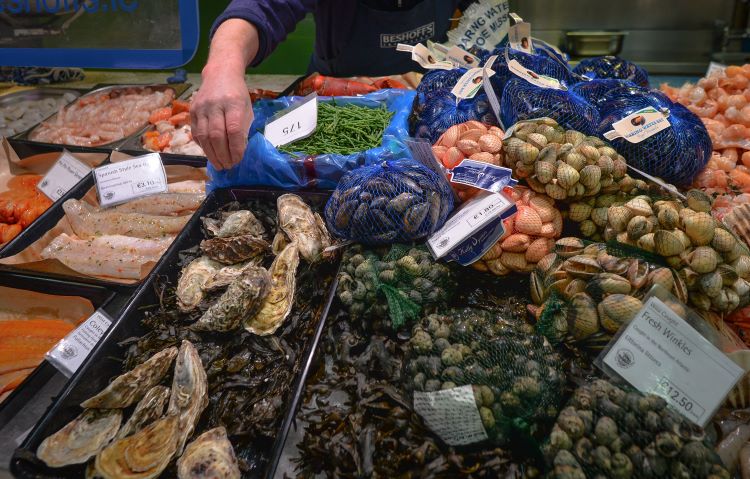Boris Johnson Orders Royal Navy To Patrol Jersey Waters Amid Threats Of A French Blockade Over Fishing Rights
HMS Severn and HMS Tamar arrived off the coast of Jersey on Thursday morning (Alamy)
3 min read
The Prime Minister has pledged his “unwavering support” to Jersey as two Royal Navy vessels are deployed to monitor the ongoing row with France over fishing rights.
HMS Severn and HMS Tamar, which are routinely used for fisheries protection, arrived near Jersey on Thursday morning.
The intervention comes as French fishermen are set to blockade the port of St Helier on the Channel Island to protest new licensing rules which they claim are restricting their rights.
Earlier this week, Maritime Minister Annick Girardin told the French parliament that the government could cut electricity to Jersey as a “retaliatory measure” if the situation was not resolved.
Jersey, the largest Channel Island and one of the UK’s Crown Dependencies, receives 95% of its electricity through underwater cables originating from France.
Last night, a Downing Street spokesperson said that the Prime Minister had spoken to the chief minister of Jersey, Senator John Le Fondré, and minister of external affairs, Ian Gorst, about the prospect of a blockade in the St Helier Port.
Boris Johnson reportedly stressed the “urgent need for a de-escalation in tensions” between France and Jersey, as well as a continued need for dialogue.
He “underlined his unwavering support for Jersey” amid the crisis, describing threats against the island as “unjustified”.

“As a precautionary measure the UK will be sending two offshore patrol vessels to monitor the situation… They agreed the UK and Jersey governments would continue to work closely on this issue,” the spokesperson said.
The situation was triggered after French fishermen complained of the difficulty in obtaining licenses to operate in Jersey waters, which were required for the first time last week under new post-Brexit fishing agreements.
Matthew Vimala, deputy director of the organisation of Normandy fishermen, told BBC Radio 4’s Today programme that the licenses contained “special conditions” which had not been previously discussed.
He added that many felt “anger” and “astonishment” as the measures, which required fishermen to prove a history of fishing in the area, limited the number of days they could fish, and monitored their location.
“It could kill, I would say, 70% of the French fleet,” he added.
Normandy MEP Stéphanie Yon-Courtin told the BBC she hoped that the UK government would “de-escalate the tensions”, but said France was "ready for war over the situation".
“Everything seemed to go well, but then surprisingly everything went wrong," she continued. "I fully understand why all the fishermen are upset and astonished, because they don't yet know when, how, or how much they will be able to fish in Channel Island waters.”

But Lord West, a former admiral of the Royal Navy and security minister under Gordon Brown, said that Royal Marine boarding squads could seize control of French vessels if they went ahead with the blockade of St Helier.
“They no doubt have on board Royal Marine boarding parties and we are used to boarding foreign vessels and indeed UK vessels,” he told Times Radio.
“We have done that over many years, if you go back to the Icelandic cod wars, so they will be working very hard to try to defuse any situations.
“But you can’t allow the vessels of another country to blockade one of our ports.
“In the final analysis, if they actually did block it, then we would have to do something to unblock it.”
He added that he hoped "we don't get to that level", and that it was "extraordinary" that the situation had escalated so quickly.
"It’s quite extraordinary to make threats of blockading, of cutting off power supplies, that really is a 19th Century way of behaving rather than a 21st Century way of behaving," he continued.
